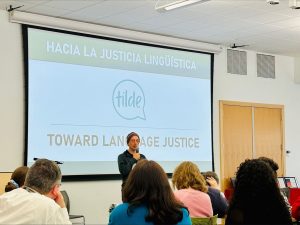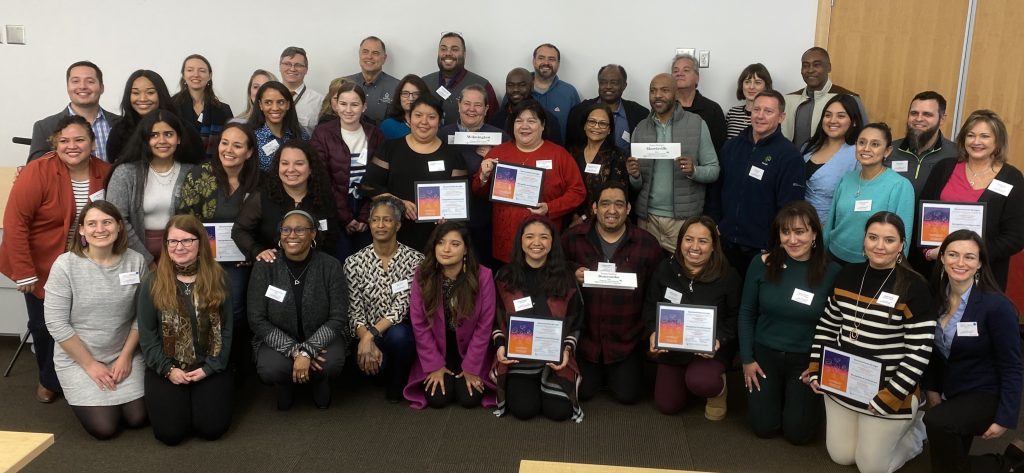Celebrating Progress: BIC's 2024 Language Access Summit
En español aquíThe Building Integrated Communities (BIC) Language Access Summit on January 19, 2024 marked a pivotal moment for the Language Access Collaborative after a year-long journey of instructional webinars, local assessments, relationship-building, and peer exchange. Nine Collaborative teams comprised of local governments and community leaders reconvened to present their newly developed language access plans at this event facilitated by staff at the Institute for the Study of the Americas at UNC-Chapel Hill. Close to 100 people, including representatives from the NC Governor’s office, local foundations, and the UNC-Chapel Hill College of Arts and Sciences, attended the Summit at the Chapel Hill Public Library. Like all Collaborative communications, the summit was linguistically accessible to speakers of English and Spanish. This intentional choice empowered attendees to communicate in their preferred language, underscoring the importance of fostering multilingual environments in North Carolina communities with limited English proficiency.
The teams presented language access plans that included a wide array of policy and procedural proposals and illustrated the diversifying linguistic landscape across North Carolina. From recruiting multilingual staff to implementing bilingual employee pay policies and enacting language access resolutions, each plan contained strategies tailored to address the unique strengths, languages, and priorities of its community.

Between team presentations, the tilde Language Justice Cooperative facilitated a language justice activity that prompted participants to reflect on their personal experiences. This exercise moved the conversation past language access policies and compliance and fostered a deeper understanding and recognition of systems, perspectives, and practices that impact individuals differently. Over half of the Collaborative participants identify as immigrants and/or children of immigrants representing 13 different countries of origin and 11 languages. Many attendees shared sentiments of feeling acknowledged, heard, and respected through this collaborative effort, emphasizing the genuine relationships built between government entities and community leaders.
The impact of the Collaborative was tangible as documented through participant evaluation. As a result of participating in the Collaborative, 93-96% reported an increase in knowledge surrounding language access policy, data, best practices, and resources; and 93% reported that the workshops and translation services were high quality and valuable. Remarkably, every respondent said that the Collaborative met their expectations, and over half handwrote that the Collaborative exceeded their expectations. In their own words, participants reflected on their experience: “I would highly recommend this Collaborative to everyone!” “I learned such valuable information. There was support every step of the way.” “It was great to hear new ideas and see other’s plans & struggles.”
As next steps, the 9 Collaborative teams will present their plans to city, county, and town leaders to be approved and implemented during FY2024-2025. Stay tuned for updates on plan adoptions and new strides in language access programming across North Carolina in the coming months!
